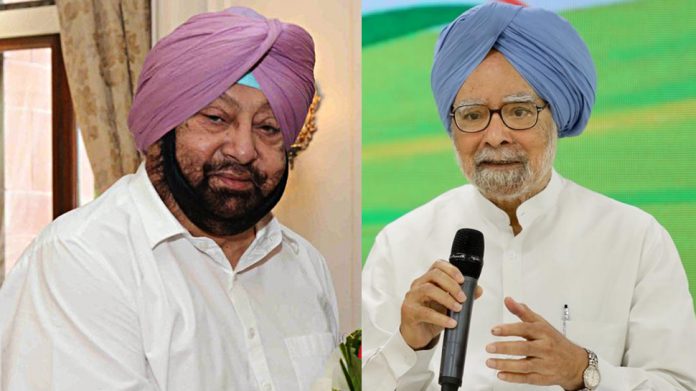
CM HOLDS INTRODUCTORY MEET WITH GROUP OF EXPERTS, MONTEK SAYS 5 SUB-GROUPS SET UP TO STEER AGENDA
Chandigarh, April 27: The Punjab Government on Monday took the initial steps towards formulating the state’s post-COVID revival strategy, with the Montek Singh Ahluwalia led Group of Experts setting up five sub-groups, even as former Prime Minister Dr Manmohan Singh accepted Chief Minister Captain Amarinder Singh’s request to provide overall guidance to the state government to restore the state’s growth and economy.
महामारी में कैसे रहें फेफड़ों के संक्रमण से दूर …. Dr. Harshinder Kaur
The Group of Experts, headed by Montek Singh Ahluwalia, had its introductory meeting, through Video Conference, with the Chief Minister, who disclosed that he had written to Dr Manmohan Singh to guide the state government along with the Group of Experts, and he had kindly accepted. “We have been working hard to steer Punjab to the path of economic growth & post Covid19, we will again focus on same,” he also tweeted.
8 एमएम तक की पथरी आसानी से हो जाएगी किडनी से बाहर… सबसे सरल उपाय || kidney stone ||
The Chief Minister also thanked the Group members for “coming to our aid’. Given the grave global situation, “I wanted the best for the state and could not think of a better group,” he added.
क्या आप भी पीते हैं ऐसी चाय ? तो आज ही छोड़ दें…नहीं तो… || tea ||
Montek informed the VC that the Group of Experts, which had co-opted two more members to the original 20, had held its first meeting. Five sub-groups – Finance, Agriculture, Health, Industry and Social Aid – had been set up to further streamline the Group’s working, he said, adding that the chairpersons of each of these Groups would mobilise workers to take the agenda forward.
Even as the Chief Minister stressed the need for the Government of India to come up solutions as Punjab was in dire state, Montek said the task before the Group was momentous but “we will definitely come out with some solutions” to steer the state’s recovery.
Captain Amarinder told the Group that the state’s financial situation was grim, with monthly revenue losses to the tune of Rs 3360 crores. This includes losses on account of GST (Rs 1322 cr), State Excise on Liquor (Rs 521 cr), Motor Vehicle Tax (Rs 198 crore), VAT on Petrol & Diesel (Rs 465 cr), Electricity Duty (Rs 243 cr), Stamp Duty (Rs 219 cr) and Non-tax Revenue (Rs 392 cr).
The state’s cash inflows had completely dried up, said the Chief Minister, adding that Power consumption had declined by 30 percent with a daily loss of Rs. 30 crore in collection of electricity tariff to the Punjab State Power Corporation Ltd. Punjab’s industry has been shut down, with less than 1% of then working. In addition, State’s GST arrears of Rs 4365.37 crore are yet to be paid by the Government of India, he lamented.
Group member and industrialist SP Oswal said the state and the industry were facing a hard time, necessitating hard decisions and sacrifices.
The Chief Minister said Agriculture was currently offering the only bright side to the situation, with the state having a bumper wheat crop, which will be followed by Cotton and Paddy. His government proposed to further reduce the Paddy cultivation to protect the depleting water resource, he said, but added that with the Centre’s stand on MSP still not clear, the situation was ambiguous.
The Centre, Captain Amarinder pointed out, had not even accepted his government’s request for bonus to incentivise the farmers to bring in their produce in a staggered manner to the Mandis, which was essential to check the spread of Covid, which was currently affected 8 districts in the state and had shown a mortality rate higher than the national average. However, the state’s percentage of the national total had declined from 2.2% on April 1 to 1.2% on April 25, he noted, adding that the doubling rate of cases (as average of last one week) stood at around 18 days against the national average of 9 days.
The Chief Minister hoped the Centre would soon extend the much-needed relief package to the state to help it tide over the current unprecedented crisis, with huge socio-economic implications.



